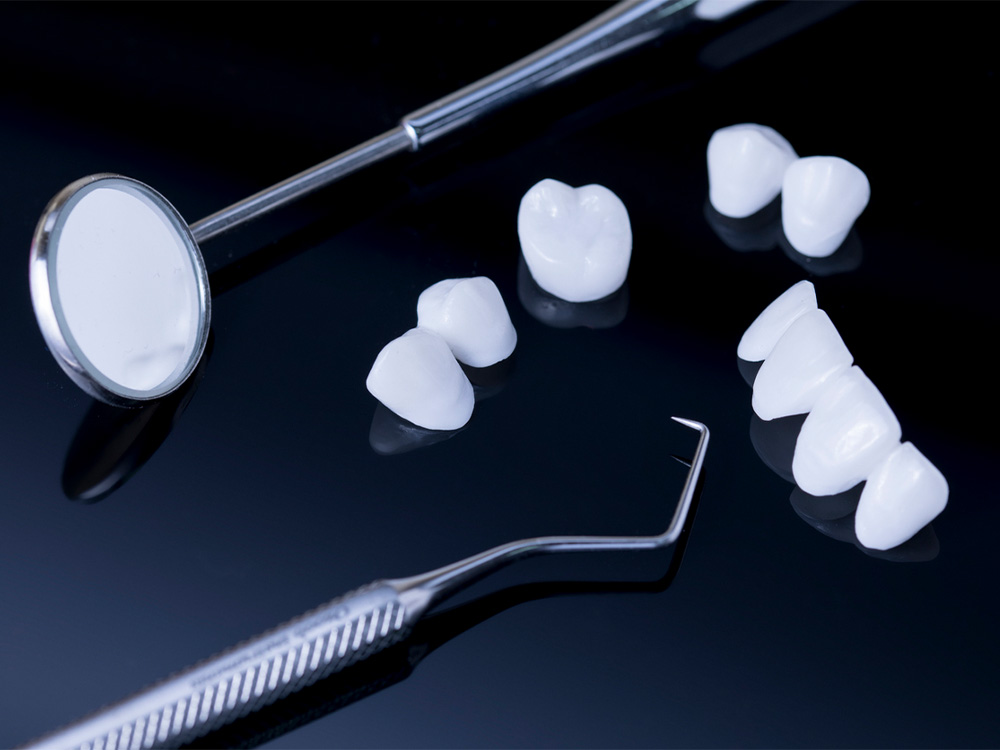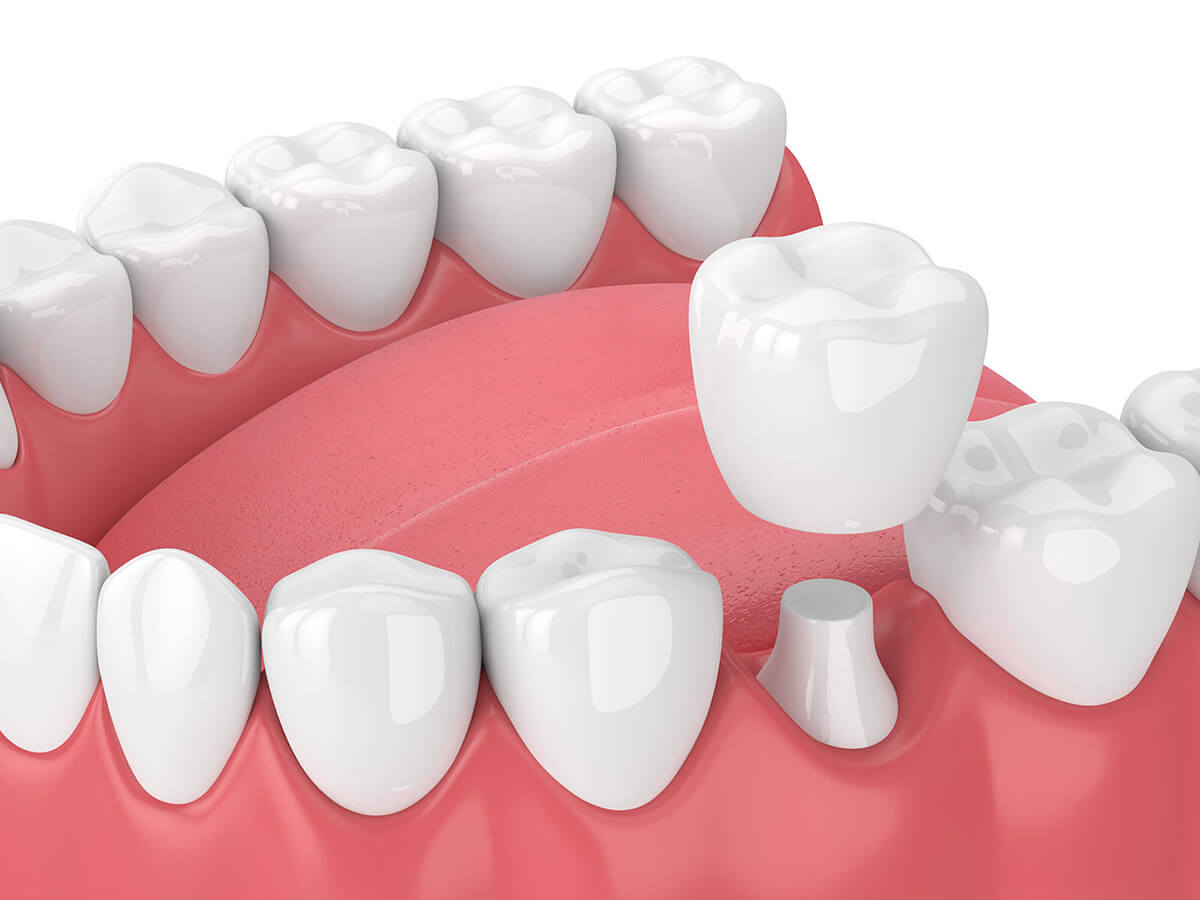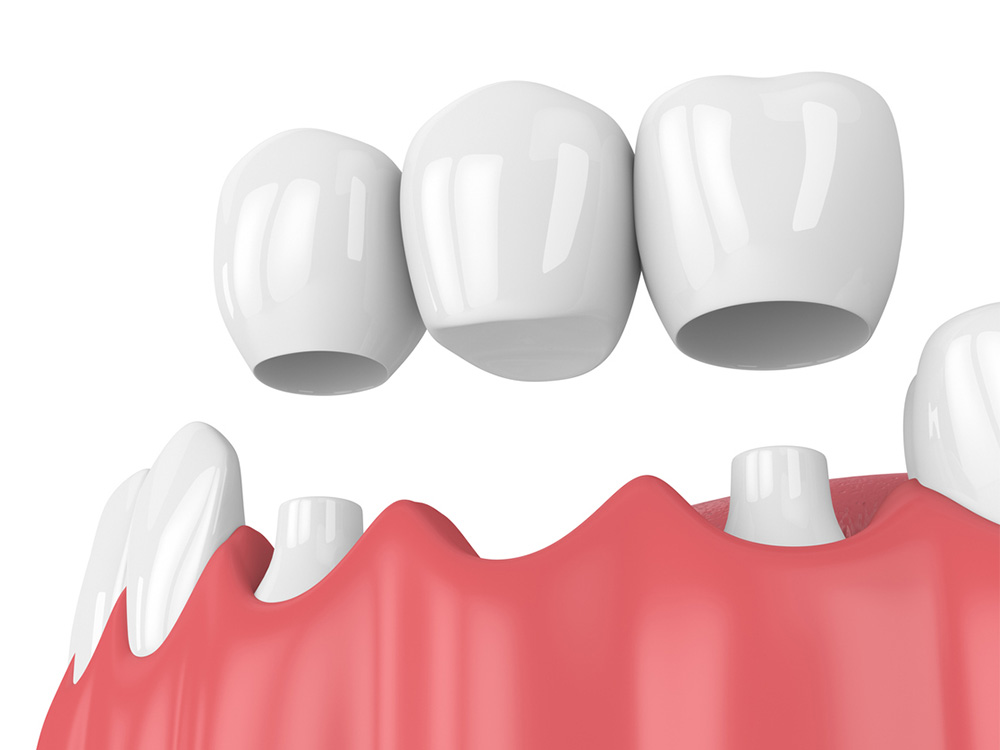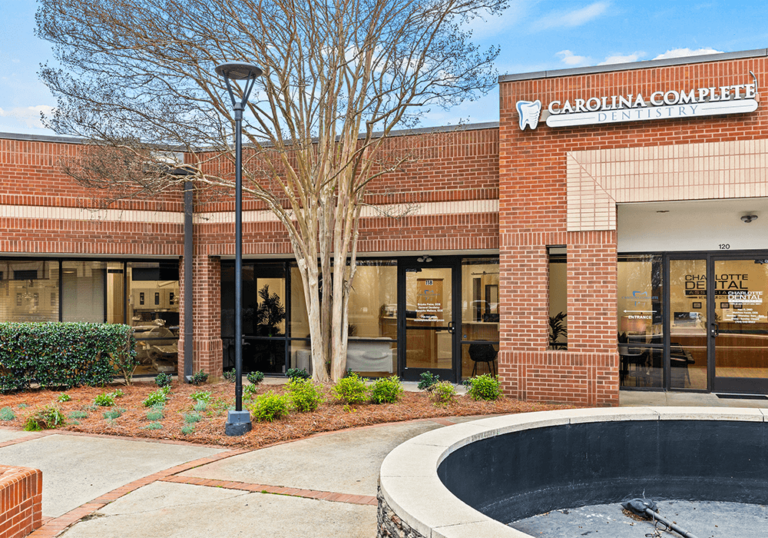Dental Crowns and Bridges
We take lost and damaged teeth very seriously. Our crowns and bridges provide the restoration results you need to smile proudly and confidently.
Dental Crowns and Bridges in Charlotte, NC
Dental crowns and bridges are restoration methods that can effectively replace or repair lost or damaged teeth. At Carolina Complete Dentistry we offer dental crowns and bridges that look natural and can restore normal chewing function. We build our crowns and bridges to last using the best materials, providing a long lifespan and a natural look and feel. Our goal with our crowns and bridges is for you to forget that they aren’t your natural teeth.
Below you can schedule your appointment, get more information about the process and cost of getting dental crowns and bridges, and see the answers to frequently asked questions about bridges and crowns from our patients.
Schedule Online

Dental Crowns and Bridges Cost
At Carolina Complete Dentistry, we provide high-quality affordable dental care so our patients can always receive the treatment they need. The cost of dental crowns and bridges varies depending on the materials used and insurance coverage. Our office is always happy to provide you with estimates on the cost of a procedure after your initial consultation.
We know many patients are concerned about cost, payment plan options, and insurance coverage when considering dental crowns and bridges. We are happy to work with you through insurance coverage, procedure costs, and any other concerns you may have. Many patients without insurance join our Dental Membership Plan to reduce the cost of their procedures.
Learn About Our Dental Membership PlanDental Crown and Bridge Process at Carolina Complete Dentistry
- Consultation & Exam. Your dentist will examine your teeth and prepare the tooth or teeth that will serve as the base for the crown or bridge. This involves trimming excess material away from the base teeth and removing the outer layer of enamel.
- Temporary Crown or Bridge. Impressions will be made of your trimmed tooth or teeth and the surrounding teeth. A temporary crown or bridge will then be put into place to protect any shaped teeth. If you have a same-day crown procedure this step and the waiting period, up to a few weeks, will not be necessary.
- Shade Matching & Prep. The shape and articulation of your crown or bridge will be planned based on the impressions made at your dentist’s office. Matching the shade of your new crown to your existing teeth will also take place to ensure a natural look.
- Crown or Bridge Placement. The last step is to actually fit and place your crown or bridge. This will involve a dry fit to ensure it fits comfortably before your dentist uses special dental cement to bond the crown or bridge to your existing teeth.
What is a dental crown?
Dental crowns are used when a tooth has sustained enough damage that a simple filling isn’t viable. Injuries that have damaged the enamel or advanced tooth decay are examples of such a situation. Crowns can also be used primarily for cosmetic reasons as an alternative to less functional veneers.
Dental crowns have many applications. The first is to be installed over a damaged tooth to cap the existing structure, which restores the damaged tooth so it can be used normally. Crowns can also be attached to dental implants to replace missing teeth without the need for a trimmed tooth or underlying root system at all. Implant-supported dental crowns involve surgically inserting a post, or titanium rod, into the jawbone to serve as the root for the tooth. This has a number of benefits, including stabilizing bone levels in the jaw and is a permanent restoration method.
Learn More About Dental Implants

What is a dental bridge?
Dental bridges are used when a patient has lost more than one tooth. They are called bridges because they consist of one or more replacement teeth that bridge the gap left by multiple lost teeth. Dental bridges can be secured using abutment crowns on each end of the gap.
Common Questions About Dental Crowns and Bridges
-
How long do dental crowns and bridges last?
The lifespan of a dental crown or bridge varies based on a number of factors such as the material used, maintenance, and position in the mouth.
The average lifespan of a dental crown is 15 years though with proper maintenance it is common to see them last as long as 25-30 years.
Dental bridges are slightly less durable and can last as little as 5-7 years up to 10-15 years with proper care.
-
Does getting dental crowns and bridges hurt?
Getting dental crowns and bridges does not involve any painful procedures. During the process, local anesthesia is used to eliminate any discomfort. After the procedure, any discomfort or pain is manageable entirely with over-the-counter pain medicine.
-
How do temporary dental crowns work?
The dental crown process typically begins with taking an impression of your upper and lower dental arches to create a replica of your teeth so that your permanent crown will fit properly both for aesthetic and hygienic purposes. A proper fit will not allow any bacteria to enter underneath the tooth structure.
Most dentists take this impression and send it off to a dental laboratory for the permanent dental crown to be built. To get the impression correct for the permanent dental crown, they must shape the tooth base below it, which could leave your tooth vulnerable in the short time between taking the impression and the permanent dental crown being delivered. Temporary dental crowns are used to ensure your tooth is protected during this period.
